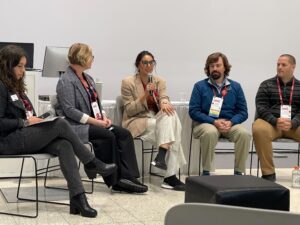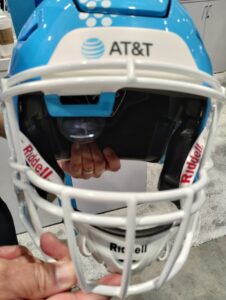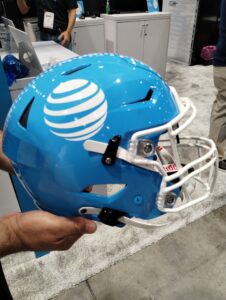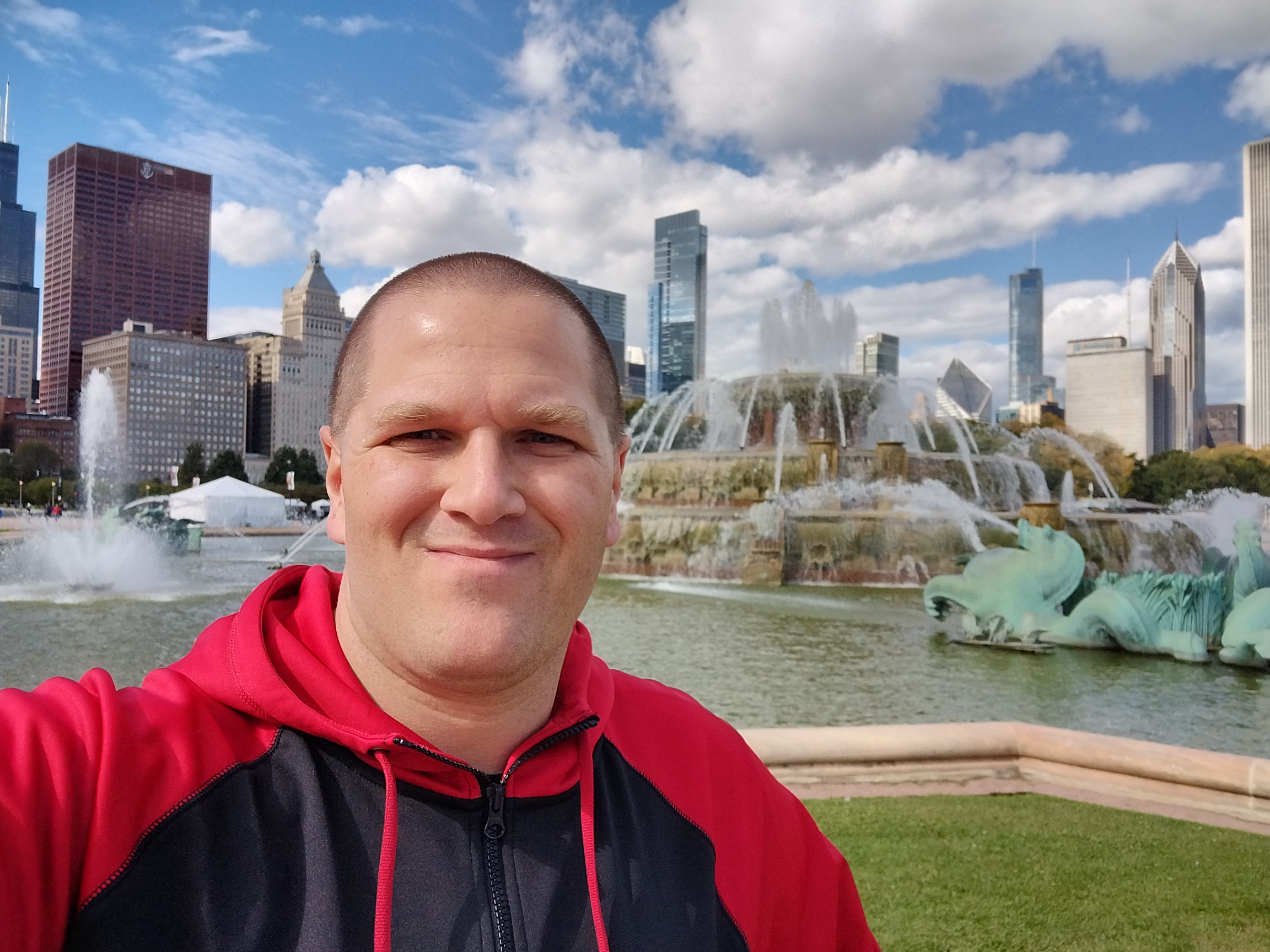I was fortunate to be able to attend the 2023 EDUCAUSE Conference in October. The conference was in Chicago and other than a little rain one evening, the weather was very pleasant. EDUCAUSE is one of the main professional organizations for technology professionals in Higher Education. The community spans across all technology areas such as network & connectivity, teaching & learning, information security, etc. I am a member of the EDUCAUSE Young Professionals Advisory Committee (yes, 35 is still “young”) where we advise EDUCAUSE leadership on how the organization and its member institutions can support young professionals to make sure the future of our industry is successful. I’m also a panelist on the 2024 Horizon Report Teaching & Learning Edition which is a yearly publication from EDUCAUSE showing trends in teaching & learning technology.
Things I learned from the conference:
I like to go to teaching & learning sessions because that’s my main job, but I also like to attend sessions where the higher-ed industry as a whole is discussed. I feel like I can do a better job of leading in academic technology if I have a better understanding of the industry as a whole. I’ll boil it down to a few bullet points that are in no particular order. The first level of points will be what was presented. The indented points will be my own thoughts. Please email me if there is anything here that you’d like to discuss further.
- There’s a lot of exciting things happening with Virtual Reality. Meta just released their new headset, the Oculus 3. It’s able to do what they’re calling Mixed Reality which means we can have stuff like what’s in this video from Victory XR where someone is doing a VR science experiment while also seeing what’s around them and being able to use their own pencil and paper in real life.
- I had a call with VictoryXR and they gave me a trial license to view their content. If you’re interested, please let me know.
- A group of presenters came from a university that has what they call the Faculty Champions Program. This group works on academic innovation and responses to things like AI so taht the approaches to new/innovative pedagogy are consistent and strategic. The group of faculty and staff meet once a month to discuss strategic approaches to spreading innovative pedagogy to their peers. They also have a monthly meeting where other faculty can come and discuss questions that were submitted ahead of time.
- Hearing how well this group works together got me excited about the possibilities of our own Center for Teaching, Learning, and Scholarship that just got started. Having the Center to bring together the various teams of people in campus that impact and influence teaching ought to lead to a more strategic approach to innovating pedagogy at Dickinson. I’m excited for the Academic Technology team to contribute to the great work of the Center.
- There was a group of presenters talking about how they include student-voices in their planning of faculty development events. They believe in prioritizing what works well for their students just as much as, if not more than, they prioritize what peer and aspirant institutions are doing. They’ve found that increasing student-voice in their faculty development has increased the impact of their events. Faculty at their school really value that what they’re learning has been informed by students. Their “student-voice” comes from LMS data, student surveys, student focus groups, and work they do with faculty to address how they would teach fictional student personas that were created using data from years of former students. A lot of the examples they shared were related to what motivates students. They also focus their LMS data and survey work on actionable data that teachers can use to inform their teaching right away. This isn’t stuff that needs to be analyzed for years. It’s actionable intelligence that they know makes an impact.
- I’d love for us to be able to get into learning analytics to provide some of that student-voice. I also have been toying with the idea of a student academic tech advisory group but I haven’t decided for sure yet.
- The CEO of D2L spoke from his experience networking with other executives from large companies. He talked a good bit about how companies now see learning as a top priority, but they typically under-resource their learning divisions. He sees this as an opportunity for higher-ed to step in and provide custom learning experiences tailored to the needs of employers. These experiences not only help the employer, but also could be offered to the institution’s students interested in those career pathways.
- I’m not in any way an expert on such things, but I’m curious if schools like Dickinson could benefit from these relationships. We leverage the expertise of our faculty to upskill employers’ workforces and subsequently open new doors for our students for internships and career positions.
- The D2L CEO also spoke about how he thinks the working definition of the word “study” has changed. He spoke about how for hundreds of years, study included zeal, passion, desire for learning, etc.. Now when we think of “study” we think of spending hours hitting the books to achieve a good grade on an exam. He’s hopeful that our industry can get back to the old definition.
- This sounds to me like a ringing endorsement of the Liberal Arts approach!
- I also heard from an executive at the University of Phoenix (I know, it’s nothing like Dickinson; but still good to learn from). She spoke about how they really put an emphasis on showing students that what they’re doing in class is related to a skill they will use later in life or their careers. She said every single class and even every individual assignment is mapped to skills identified at the program-level. Even the feedback provided by faculty to students is related to those skills.
- I’m not sure about Dickinson because I haven’t been here that long. But at my previous school, we heard a lot from prospective students and parents that they wanted a clear connection between their degree and their career future. We had programs at that school that were truly professional disciplines like Nursing (veterinary and human) and Teacher Certification. So for those programs we had to align to skills for program accreditation. It’s interesting to hear that U of Phoenix is doing this for every program even if not required for accreditation. I wonder if it’ll become the industry-norm in the coming decades.
- I went to a session about virtualizing computer labs. I doubt any reader of this blog cares very much about lab virtualization right now. It’s more of a techy IT thing. What you might be interested in, though, is that if we ever do virtualize our computer labs it’s a very good way to combat equity concerns brought on by some students not having the funds for really nice computers.
I’ll organize the Generative AI tidbits together in a separate list here.
- Academic Use of AI
- There are professors using ChatGPT to take their own instructions for assignments and syllabus language and turning them into a more conversational tone so that they’re not as intimidating to students.
- This might not be something that everyone needs to do, but if you suspect your students are misunderstanding your instructions or course policies/procedures, this might be a good thing to try. I suspect you could paste your instructions into ChatGPT and just type “make this more conversational.”
- Students generally want to know upfront at the start of the course what your expectations are regarding AI, what they’re allowed to use it for, etc.
- Various groups that presented have seen success using AI to help students brainstorm. Another good example is having students use critical thinking by having AI generate material and then have the students improve the output while having to explain their rationale for the changes they make.
- There are professors using ChatGPT to take their own instructions for assignments and syllabus language and turning them into a more conversational tone so that they’re not as intimidating to students.
- Administrative/Industry Use of AI
- Chatbots connected to your website or LMS are not only helpful for students, but institutions can also use the questions being asked to identify things that need to be changed. For example, if you have a chatbot on your website and you get a bunch of questions about the financial aid process, then what you’re communicating on your website about that topic may not be clear enough.
- The “transformative threat” of AI is a good opportunity for institutions and the industry to reframe what we’re offering. Especially places like liberal arts schools ought to be actively embracing AI and telling prospective students that we’ve never been about the stuff AI can do for you. We’ve always taught the stuff that’s above the capabilities of AI; truly human thinking.
Photos from my trip:
I’m not one to take a bunch of pictures everywhere I go, but here are a few from the conference and my travels.

I was part of a panel discussion titled “Ask a Young Professional” where conference attendees young and old came and asked us questions about how young professionals can be better supported in the workplace, how young professionals can advocate for themselves, etc.


This isn’t related to my work really, but AT&T had their prototype for a football helmet that would allow coaches to communicate play-calls to deaf players. If you look closely, there is a little clear screen. The play-call would appears on that screen so the deaf players know what their hearing-able teammates are hearing in the huddle. I’m pretty sure this helmet is already being used at Gallaudet University



I didn’t have a ton of time for sight-seeing, but I was able to walk to a few parks and see the river. I wanted to see “The Bean” up close but it was blocked off by construction fencing.

Leave a Reply
You must be logged in to post a comment.